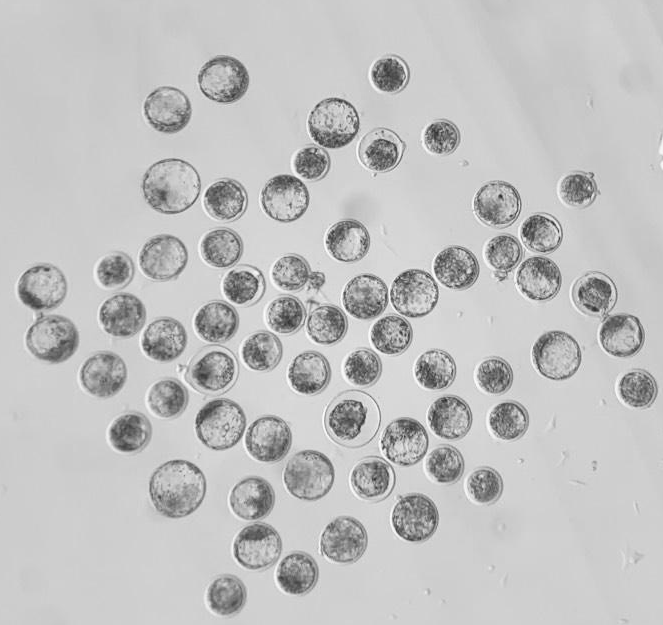Jan 16, 2025

By Diane Broek
If you’ve ever wondered, “Do cows have eggs?” the answer is yes—but not quite the kind you’re picturing. Unlike chickens, cows don’t lay large, shell-covered eggs. Instead, they produce microscopic structures called oocytes—the foundation of reproduction. Though small enough to resemble a speck of dust, these oocytes play an essential role in the cattle reproduction process.
At Trans Ova Genetics, we work with these incredible “eggs” to help farmers and ranchers achieve their breeding goals through advanced reproductive technologies like embryo transfer (ET), in vitro fertilization (IVF), and cloning.
Let’s dive into the fascinating world of oocytes and their importance in modern agriculture.
An oocyte is an immature egg cell found in the ovaries of female cows. This tiny powerhouse is vital for reproduction, and here’s why:
At Trans Ova Genetics, we harness the potential of oocytes through innovative reproductive tools that allow producers to maximize their herds. Here’s how:
In ET, fertilized embryos are collected from donor cows through a process called flushing.
IVF is a cutting-edge process where oocytes are fertilized in a lab rather than inside the cow.
Oocytes are also central to the cloning process, known as somatic cell nuclear transfer (SCNT).
Although small, oocytes are arguably the most critical component of cattle reproduction. At Trans Ova Genetics, we view these microscopic structures as the building blocks for:
Their versatility allows farmers and ranchers to:
The unsung hero of cattle reproduction, the humble oocyte, may hold the answer to this age-old question. Without oocytes, there would be no calves—and no progress.
At Trans Ova Genetics, we celebrate these tiny giants and their role in shaping the future of agriculture. Whether you’re breeding for milk production, beef traits, or genetic preservation, oocytes are at the heart of every success story.
Curious about how oocytes could help your herd? Contact us today and learn how our advanced reproductive technologies can help you breed your next generation of progress.